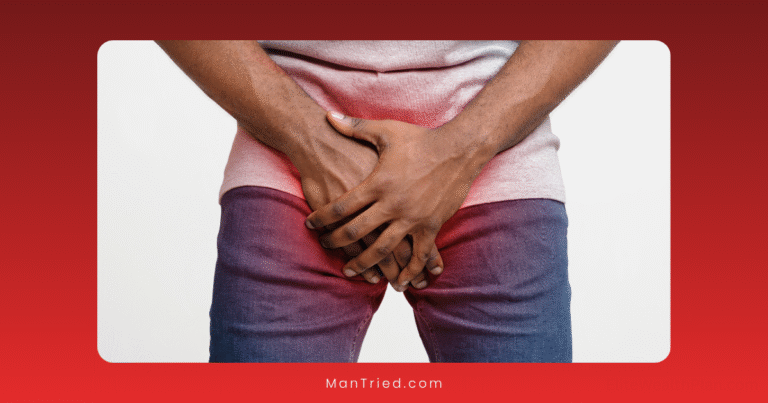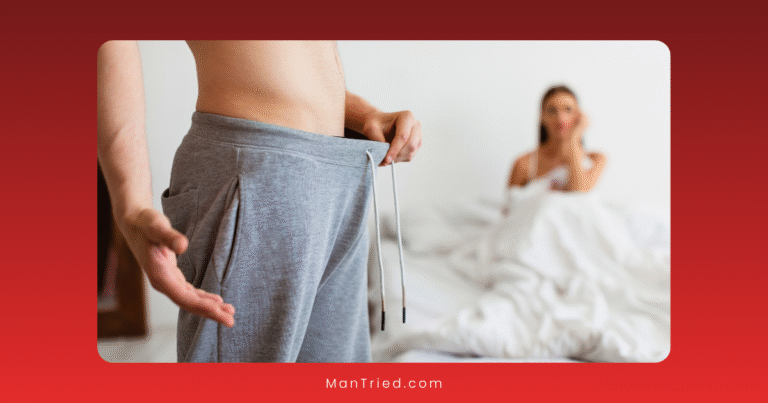Rekindling Desire: Evidence-Based Approaches to Boosting Libido

Low libido affects millions of men worldwide, with studies suggesting that up to 30% of men experience periods of decreased sexual desire at some point in their lives. While the internet is flooded with quick-fix solutions and miracle supplements promising to reignite passion, separating science from hype can be challenging.
This comprehensive guide explores evidence-based approaches to enhancing male libido, drawing from the latest research and clinical studies. Whether you’re experiencing a temporary dip in desire or a longer-term issue, these scientifically-supported strategies can help you understand and address the underlying factors affecting your sexual interest.
Understanding the Science of Desire
Before diving into solutions, it’s important to understand that libido is influenced by a complex interplay of biological, psychological, and social factors:
- Hormonal factors: Primarily testosterone, but also other hormones like cortisol and thyroid hormones
- Neurochemical balance: Dopamine, serotonin, and other neurotransmitters that regulate pleasure and motivation
- Vascular health: Blood flow necessary for arousal and sexual function
- Psychological state: Stress, anxiety, depression, and other mental health factors
- Relationship dynamics: Communication, intimacy, and emotional connection
- Lifestyle elements: Sleep, exercise, nutrition, and substance use
Research published in the Journal of Men’s Health emphasizes that effective approaches to enhancing libido typically address multiple aspects of this complex system rather than focusing on a single factor.
Lifestyle Interventions with Strong Evidence
Exercise: The Most Reliable Libido Booster
Numerous studies confirm that regular physical activity can significantly enhance male sexual desire and function:
Aerobic Exercise
A 2023 meta-analysis published in the Journal of Sexual Medicine found that men who engaged in moderate-intensity aerobic exercise (150 minutes weekly) reported:
- 30% improvement in sexual desire
- Better erectile function
- Enhanced overall sexual satisfaction
The benefits appear to result from:
- Improved cardiovascular health and blood flow
- Increased testosterone production
- Reduced stress and anxiety
- Enhanced body image and confidence
Resistance Training
Research from the University of California found that resistance training 2-3 times weekly provides additional benefits:
- Greater increases in testosterone compared to aerobic exercise alone
- Improved body composition, enhancing self-image
- Increased energy and vitality
Dr. Irwin Goldstein, director of sexual medicine at Alvarado Hospital, notes: “If I could prescribe only one thing for male sexual health, it would be regular exercise. Nothing else comes close to its comprehensive benefits for sexual function and desire.”
Sleep Optimization: The Overlooked Essential
Sleep quality and duration have emerged as crucial factors in male libido, according to research published in PMC:
- Men who sleep less than 5 hours nightly have testosterone levels 10-15% lower than those who get 7-8 hours
- A single week of sleep restriction can significantly reduce testosterone in healthy young men
- Sleep disorders like obstructive sleep apnea are strongly linked to reduced sexual desire
A 2024 study from the University of Chicago found that men who increased their sleep duration from 5.5 to 7.5 hours experienced an average 12% increase in testosterone levels and reported significantly higher sexual desire.
Effective sleep strategies include:
- Maintaining consistent sleep and wake times
- Creating a cool, dark sleeping environment
- Limiting screen time before bed
- Addressing sleep disorders like sleep apnea
- Practicing relaxation techniques to improve sleep quality
Nutritional Approaches: Beyond the Hype
While many foods are claimed to boost libido, only some have scientific backing:
Mediterranean Diet Pattern
A 2023 study in the International Journal of Impotence Research found that men following a Mediterranean diet reported:
- 40% lower incidence of sexual dysfunction
- Higher testosterone levels
- Better overall sexual satisfaction
The diet emphasizes:
- Abundant fruits and vegetables
- Whole grains
- Healthy fats (olive oil, nuts, avocados)
- Lean proteins, especially fish
- Limited processed foods and red meat
Key Nutrients with Evidence
Research has identified several nutrients particularly important for male sexual health:
Zinc
- Essential for testosterone production
- Found in oysters, beef, pumpkin seeds, and crab
- Deficiency is associated with low testosterone and reduced desire
Vitamin D
- Acts as a steroid hormone in the body
- Correlates with testosterone levels in multiple studies
- Sources include sunlight exposure, fatty fish, and fortified foods
Omega-3 Fatty Acids
- Support hormonal balance and vascular health
- May enhance dopamine production, improving mood and motivation
- Found in fatty fish, flaxseeds, and walnuts
According to Harvard Health, while individual nutrients matter, the overall dietary pattern appears more important than any single food or supplement.
Weight Management: A Critical Factor
Research consistently shows that excess weight, particularly around the abdomen, negatively impacts male libido through several mechanisms:
- Conversion of testosterone to estrogen in fat tissue
- Increased inflammation affecting hormonal balance
- Higher rates of vascular issues affecting blood flow
- Potential psychological impact on body image and confidence
A 2024 clinical trial found that men who lost 10% of their body weight through diet and exercise experienced:
- Average increase of 50 ng/dL in total testosterone
- Significant improvements in sexual desire and function
- Better energy levels and mood
Dr. Rachel Rubin, a urologist and sexual medicine specialist, emphasizes: “Even modest weight loss can have dramatic effects on male sexual function. We often see improvements in libido before other health markers change.”
Stress Management: Breaking the Desire-Killing Cycle
Chronic stress is a well-established libido killer, operating through multiple pathways:
- Elevated cortisol suppresses testosterone production
- Stress activates the sympathetic nervous system, inhibiting sexual response
- Mental preoccupation with stressors leaves little space for sexual thoughts
- Stress often leads to unhealthy coping mechanisms (alcohol, poor sleep, etc.)
Evidence-based stress reduction techniques include:
Mindfulness Meditation A 2023 study in the Journal of Sexual Medicine found that an 8-week mindfulness program led to:
- Significant improvements in sexual desire
- Reduced performance anxiety
- Better overall sexual satisfaction
Regular Relaxation Practices Research shows that incorporating relaxation techniques can lower stress hormones and improve sexual function:
- Deep breathing exercises
- Progressive muscle relaxation
- Time in nature
- Creative activities
- Social connection
Medical Interventions with Scientific Support
When lifestyle modifications aren’t sufficient, several medical approaches have strong evidence supporting their effectiveness:
Hormone Optimization
Testosterone Replacement Therapy (TRT)
For men with clinically low testosterone (typically below 300 ng/dL), TRT has substantial evidence supporting its effectiveness for libido:
- A 2024 meta-analysis found that 78% of men with low testosterone reported improved sexual desire with appropriate replacement therapy
- Benefits typically appear within 3-6 weeks and continue to improve over 3-6 months
- Various administration methods include injections, gels, patches, and pellets
Dr. Abraham Morgentaler, founder of Men’s Health Boston and Associate Clinical Professor at Harvard Medical School, notes: “For men with true testosterone deficiency, replacement therapy can be transformative for sexual desire and overall quality of life.”
However, TRT is not appropriate for all men and requires careful medical supervision.
Thyroid Optimization
Research shows that even subclinical thyroid dysfunction can impact libido:
- Hypothyroidism (underactive thyroid) can reduce testosterone levels and energy
- Hyperthyroidism (overactive thyroid) can cause anxiety and erectile issues
- Proper diagnosis and treatment of thyroid conditions often improves sexual function
Medication Adjustments
Many common medications can reduce libido as a side effect. A systematic approach includes:
- Reviewing all current medications with a healthcare provider
- Considering alternatives with fewer sexual side effects when possible
- Adjusting dosages when appropriate
- Timing medication administration to minimize impact on sexual activity
Medications commonly associated with reduced libido include:
- Certain antidepressants (particularly SSRIs)
- Some blood pressure medications
- Finasteride and dutasteride (for prostate enlargement or hair loss)
- Opioid pain medications
- Some antihistamines
Psychological Approaches with Clinical Evidence
Cognitive-Behavioral Therapy (CBT)
Multiple studies confirm the effectiveness of CBT for addressing psychological factors affecting libido:
- A 2024 review in Medical News Today found that CBT significantly improved sexual desire in 65-70% of men with psychological barriers to desire
- Typically involves 8-12 sessions focusing on identifying and changing negative thought patterns
- Particularly effective for performance anxiety, body image concerns, and stress-related desire issues
Mindfulness-Based Therapies
Specialized mindfulness approaches for sexual issues show promising results:
- Help men focus on physical sensations rather than performance
- Reduce spectatoring (mentally observing oneself during sexual activity)
- Enhance awareness of subtle arousal cues
- Decrease anxiety that interferes with desire
A 2023 study found that an 8-week mindfulness program specifically designed for sexual concerns resulted in significant improvements in desire and satisfaction for 67% of male participants.
Relationship Therapy
For men in relationships, the quality of the partnership significantly impacts desire. Evidence-based approaches include:
- Emotionally Focused Therapy (EFT) to address attachment and intimacy issues
- Communication training to improve sexual dialogue
- Sensate focus exercises to reduce performance pressure
- Exploration of desire discrepancies and negotiation of sexual needs
Natural Supplements: Separating Evidence from Hype
While countless supplements claim to boost libido, few have substantial scientific evidence. Those with the strongest research support include:
Maca Root (Lepidium meyenii)
- A 2023 systematic review found that maca supplementation improved sexual desire in men
- Appears to work independently of hormonal changes
- Typical effective dosage: 1.5-3g daily
- Generally well-tolerated with minimal side effects
Red Ginseng (Panax ginseng)
Research published in PMC indicates:
- Moderate evidence for improving erectile function
- May enhance nitric oxide synthesis, supporting blood flow
- Some evidence for increased sexual desire
- Typical dosage: 900-1000mg daily
Fenugreek (Trigonella foenum-graecum)
- Several clinical trials show modest improvements in libido and testosterone
- May work by inhibiting aromatase (which converts testosterone to estrogen)
- Typical dosage: 500-600mg daily of standardized extract
According to Healthline, while these supplements show some promise, results vary significantly between individuals, and quality control remains a concern with many products.
Dr. Michael Krychman, sexual medicine gynecologist and executive director of the Southern California Center for Sexual Health, cautions: “Supplements should be viewed as complementary approaches, not replacements for addressing underlying health issues affecting libido.”
Emerging Approaches with Preliminary Evidence
Several innovative approaches show promise in early research:
Red Light Therapy
- Emerging evidence suggests that red light therapy may increase testosterone production
- May enhance mitochondrial function in testicular tissue
- Early studies show increases in sexual desire and satisfaction
- More research needed to confirm optimal protocols and long-term effects
Pelvic Floor Therapy
While traditionally associated with female sexual health, pelvic floor therapy is gaining attention for men:
- Can improve blood flow to genital region
- May enhance sensation and orgasmic function
- Particularly helpful for men with chronic pelvic pain affecting desire
- Often combined with other approaches for comprehensive treatment
Creating a Personalized Approach
Given the multifaceted nature of libido, the most effective approach typically combines multiple strategies tailored to individual needs:
Step 1: Comprehensive Assessment
Work with healthcare providers to identify potential contributing factors:
- Hormonal status (testosterone, thyroid, etc.)
- Cardiovascular health
- Medication effects
- Psychological factors
- Relationship dynamics
- Lifestyle elements
Step 2: Address Medical Foundations
Prioritize treating any underlying medical conditions:
- Hormone optimization if indicated
- Management of chronic conditions like diabetes or heart disease
- Medication adjustments when possible
- Treatment of sleep disorders
Step 3: Implement Lifestyle Optimization
Focus on evidence-based lifestyle modifications:
- Regular exercise program combining aerobic and resistance training
- Sleep optimization
- Mediterranean-style dietary pattern
- Stress management techniques
- Moderation of alcohol and elimination of smoking
Step 4: Consider Psychological Support
Address mental and emotional factors:
- Cognitive-behavioral therapy if anxiety or negative thought patterns are present
- Mindfulness practices for stress and sexual awareness
- Relationship therapy if partnership issues contribute to low desire
Step 5: Selective Use of Supplements
Consider evidence-based supplements as complementary approaches:
- Focus on those with stronger research support
- Use quality products from reputable manufacturers
- Monitor effects and discontinue if no benefits are observed
Case Studies: Evidence-Based Success Stories
Michael’s Multifaceted Approach
Michael, 45, experienced gradually declining libido over several years. Comprehensive testing revealed slightly low testosterone (320 ng/dL) and poor sleep quality. His integrated treatment plan included:
- Resistance training 3 times weekly
- Mediterranean diet with emphasis on zinc-rich foods
- Sleep apnea treatment with CPAP
- Stress reduction through daily meditation
After six months, Michael reported:
- Testosterone increased to 480 ng/dL
- Significantly improved sexual desire
- Better energy and mood
- Enhanced relationship satisfaction
James’s Psychological Breakthrough
James, 38, had normal hormone levels but experienced situational low desire related to performance anxiety and work stress. His evidence-based approach included:
- 12 sessions of cognitive-behavioral therapy
- Mindfulness-based stress reduction program
- Communication coaching with his partner
- Regular physical activity
Within four months, James reported:
- Reduced anxiety about sexual performance
- Increased spontaneous sexual thoughts
- Improved ability to be present during intimate moments
- Better work-life balance supporting overall well-being
When to Seek Professional Help
Consider consulting healthcare providers if:
- Low desire has persisted for several months
- The change in libido is causing personal distress
- Relationship conflict has developed around sexual issues
- Other symptoms are present (fatigue, mood changes, etc.)
- Self-help strategies haven’t improved the situation
The Bottom Line
While there’s no single “magic bullet” for enhancing male libido, the scientific evidence clearly shows that multiple evidence-based approaches can effectively address low desire. By focusing on strategies with solid research support—particularly exercise, sleep, stress management, and addressing any hormonal imbalances—most men can experience significant improvements in sexual interest and satisfaction.
Remember that sexuality naturally evolves throughout life, and what constitutes “normal” desire varies widely between individuals. The goal isn’t necessarily to match some arbitrary standard but to achieve a level of sexual interest that feels fulfilling for you and your partner.
Have you tried any of these evidence-based approaches to enhancing libido? What has worked for you? Share your experiences in the comments below.






